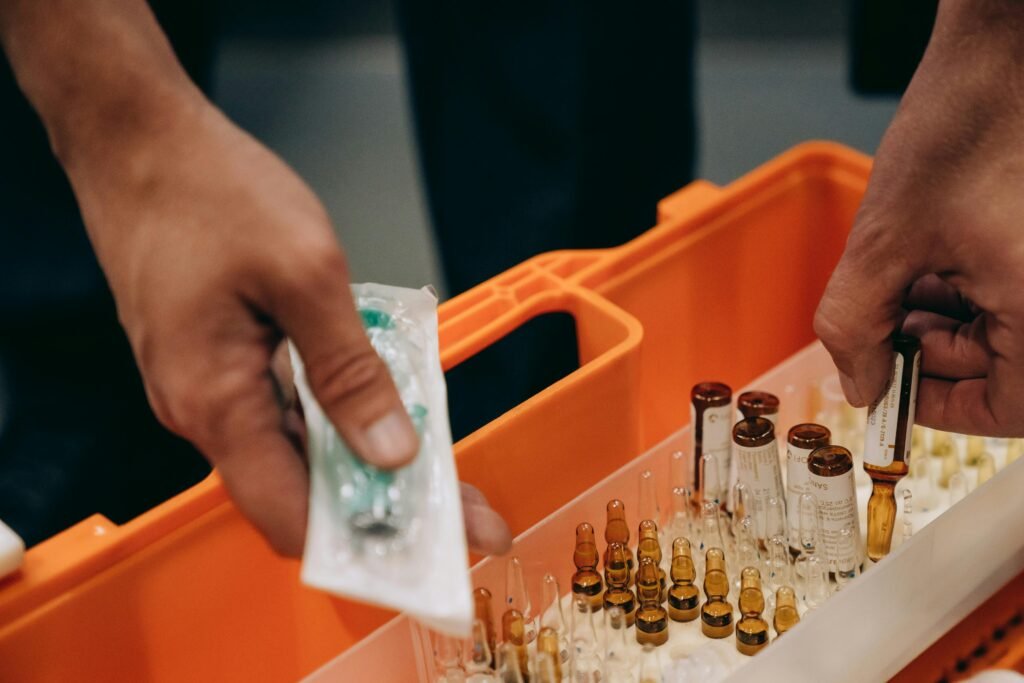

Introduction to Home Medical Supplies
Home medical supplies play a crucial role in ensuring effective patient care within the home environment. These supplies encompass a wide range of products designed to assist individuals in managing their health conditions, recuperating from surgeries, or simply enhancing their overall well-being. The significance of having effective medical supplies readily available cannot be overstated, as they facilitate recovery by providing necessary support and treatment while maintaining the comfort of one’s home.
Many individuals can greatly benefit from having a stock of essential home medical supplies. Patients recovering from surgeries or injuries may find these supplies particularly valuable, as they can aid in wound care, pain management, and physical rehabilitation. For older adults, home medical supplies can contribute to safer living environments, thus reducing the risk of accidents and promoting independence. Furthermore, individuals with chronic illnesses often require specific supplies to manage their conditions effectively, making the availability of the right tools essential for daily living.
Home medical supplies benefit patients, caregivers, and family members by simplifying care. Easy access reduces stress and uncertainty. This allows caregivers to focus on emotional support. Essential supplies include wound care kits, mobility aids, diagnostic devices, and hygiene products. Each category addresses specific health needs, improving overall care quality.
In conclusion, understanding the importance and benefits of home medical supplies is pivotal for anyone involved in patient care. Ensuring that these supplies are readily available can significantly enhance the recovery experience, provide comfort, and promote independence for those in need of medical assistance at home.
Basic Home Medical Supplies List
Every household should maintain a comprehensive inventory of basic home medical supplies to effectively manage minor health issues and emergencies. This ensures that residents are prepared for a variety of situations that may arise. Here are some essential items that every home should have:
First and foremost, a well-stocked first aid kit is crucial. This kit should include adhesive bandages of various sizes for cuts and scrapes, as well as sterile gauze pads to cover larger wounds. Antiseptic wipes or solutions, such as hydrogen peroxide or alcohol, are necessary for cleaning these wounds to minimize the risk of infection. Additionally, medical tape is important for securing dressings and gauzes in place.
For fever management and monitoring, a digital thermometer is vital. It allows for quick and accurate temperature readings, which can help assess the severity of illnesses such as the flu or infections. Alongside this, a reliable blood pressure monitor can provide insights into cardiovascular health and is essential for those with hypertension or other related conditions.
Pain relief medications are also a critical aspect of home medical supplies. Over-the-counter options, such as acetaminophen or ibuprofen, should be readily available to manage common discomforts. Furthermore, antihistamines might be added to handle allergic reactions effectively.
In addition to these items, it is advisable to keep disposable gloves and a thermometer for emergency situations involving bodily fluids, as they provide an extra layer of protection for the caregiver. Lastly, a notepad or an application to track medical information, including allergies, medication schedules, and doctor’s appointments, can help manage ongoing health conditions more effectively.
In essence, having these basic home medical supplies readily available can empower individuals to promptly address health issues and minimize complications. Proper preparation is key to maintaining health and safety at home.
Specialized Home Medical Supplies
记忆已更新
Specialized home medical supplies enhance quality of life for individuals with health conditions. Chronic diseases like diabetes and asthma require specific tools. Glucose monitors are essential for diabetes management. These devices help individuals check blood sugar levels regularly. This enables informed decisions about diet, medication, and health strategy. Glucose monitors reduce the risk of diabetes complications.
Moreover, insulin delivery systems such as pens and pumps are also vital supplies for diabetics. These devices simplify the administration of insulin, allowing for more precise dosing and better glycemic control. The convenience and portability of these supplies empower users to seamlessly incorporate their diabetes management into their daily routines, contributing positively to their overall health.
Asthma, another chronic condition, similarly requires specialized medical supplies to ensure effective management. Inhalers, including metered-dose inhalers (MDIs) and dry powder inhalers (DPIs), are critical for delivering medication directly to the lungs, providing rapid relief from asthma symptoms. Spacers can also be used with inhalers to enhance medication delivery, making it easier for patients to receive the correct dosage.
Nebulizers are key for asthma management, especially during acute exacerbations. They deliver medication as a mist for easier inhalation. Specialized home medical supplies improve symptom control, reduce hospitalizations, and enhance quality of life.
Maintaining and Organizing Your Medical Supplies
Proper maintenance and organization of home medical supplies are crucial for ensuring readiness in case of emergencies or routine health needs. One of the foundational aspects of this process involves proper storage techniques. Medical supplies should be kept in a clean, dry, and cool environment to prevent degradation or contamination. Utilize storage solutions such as bins or cabinets that are designated solely for medical use. Labeling these containers can enhance accessibility and minimize confusion when searching for specific items.
Another critical factor is tracking expiration dates. Regularly check the expiration dates of medications and other supplies. Establishing a routine, such as a monthly review of your inventory, can help you stay informed about which items need replacing. Expired medical supplies can be harmful; therefore, it’s essential to dispose of them properly according to local regulations. Maintaining a list of supply expiration dates within your storage area can also help facilitate this tracking process.
To promote ease of access and efficiency, organizing your medical supplies is paramount. Segregate supplies by type, such as over-the-counter medication, first aid items, or equipment for chronic conditions. Within each category, arrange supplies based on frequency of use, placing the most commonly used items at the front. Additionally, consider using clear containers to provide visibility of contents without needing to sift through multiple items.
Maintaining an inventory by regularly noting which supplies are running low can save valuable time in emergencies. Always be prepared to replenish items proactively rather than reactively. Keeping a checklist of your medical supplies can not only prevent shortages but also lead to better health management in stressful situations. An organized, well-maintained supply of medical items is essential for any household, ensuring swift action when needed.









